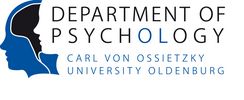Masterthesisprojects
Master Thesis Projects
Motivated students have the possibility to do their master thesis research in the work group. For a collection of possible topics see below.
Sensory Sensitivity and Auditory Processing in Complex Soundscapes
This project investigates individual differences in noise sensitivity and how they influence the perception of complex sound environments. Based on Dunn’s model of sensory processing, we explore how people differ in their neurological thresholds for sensory input and their coping strategies in response to noise.
Building on the findings from Silvia Korte’s study (From Beeps to Streets: Unveiling Sensory Input and Relevance Across Auditory), we will use the same auditory stimuli—recordings of urban street scenes—while participants engage in everyday office working activity. Using mobile EEG, this project aims to:
Skills & Tools You Will Use and Learn:
This project is ideal for students with a background in cognitive neuroscience, psychology, biomedical engineering, or a related field who are interested in EEG research and data analysis.
Contact: martin.bleichner@uol.de |
Differentiation of Eating Behavior through Video-Based Mouth Movement Detection
This master’s thesis focuses on the recognition and differentiation of eating behavior based on video recordings. Building on existing methods for mouth movement detection, originally developed for speech recognition, the goal is to explore how different types of food intake can be automatically identified.
Objectives:
- Adapt existing models for mouth movement detection to distinguish between eating and drinking.
- Classify food textures (e.g., soft vs. hard food) by analyzing mouth movements.
- Estimate the amount of food or liquid consumed based on visual features such as chewing motions or mouth opening.
- Implement the system on a Raspberry Pi to develop a portable solution for real-time eating behavior monitoring.
Requirements:
- Interest in computer vision, machine learning, and health research.
- Basic knowledge of Python is helpful but not required.
- Experience with OpenCV or deep learning frameworks such as TensorFlow or PyTorch is advantageous but can be acquired during the project.
- Interest in working with a Raspberry Pi for the practical implementation of the model.
Supervision and Support:
The thesis will be supervised by an interdisciplinary team providing regular support in machine learning, computer vision, and health research. Students will have the opportunity to develop their own research approaches and gain hands-on experience in a real-world project.
Interested students can apply by submitting a short motivation letter and a CV to(martin.bleichner@uol.de)

